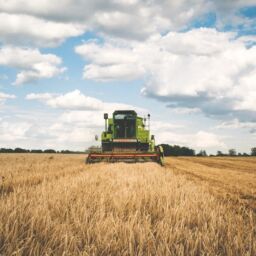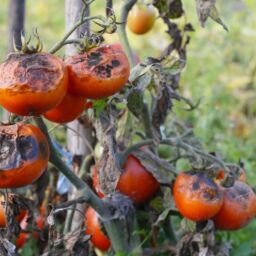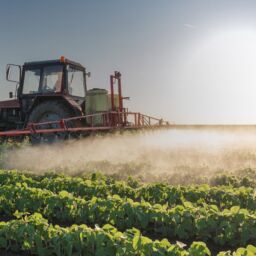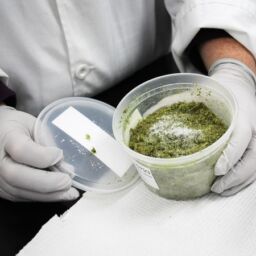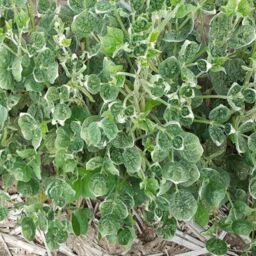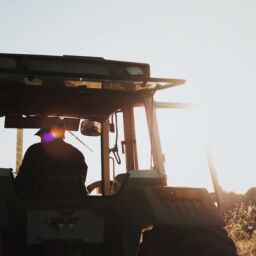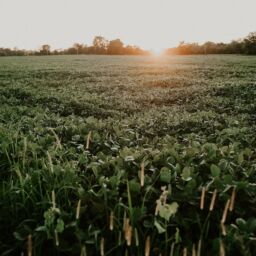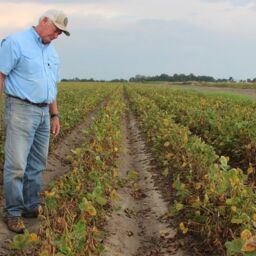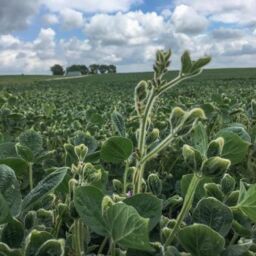Dicamba Lawsuit | St. Louis Public Radio | Corinne Ruff | Jan 24, 2020
—
Five years ago, the owner of Missouri’s largest peach farm started noticing damage to his orchard. A year later, Bader Farms estimated a loss of more than 30,000 trees.
A lawsuit filed by the farm in 2016 alleges Monsanto, now owned by Bayer, and herbicide maker BASF Corp. are to blame because the weed killer drifted from other fields. Both companies deny the allegations.
That suit, which seeks $21 million in damages, will be heard in federal court starting Monday in Cape Girardeau. It will be the first of several dicamba-related suits against the corporations to go to trial.
Weed scientist Aaron Hager has been watching the dispute play out in the fields as more farmers plant dicamba-resistant seeds.
“There’s been issues where neighbors that have been friends for years don’t even talk to each other anymore,” he said.
The associate professor in the crop sciences department at the University of Illinois has been studying weed science for decades.
While there’s a long history of the use of dicamba-based herbicides in the Midwest, he said it has become a particularly divisive topic among farmers over the past few years.
Corinne Ruff: So, dicamba-based herbicides aren’t new?
Aaron Hager: We’ve seen literally issues with soybean exposure to dicamba in Illinois every year since it was first commercialized in the late 1960s, so it’s really not anything that was new to us.
Ruff: You grew up on a farm in western Illinois — is this something you knew about then?
Hager: Oh sure, we had corn production even back in the dark ages when I was growing up. And of course you know some of the weed challenges and the problems that we faced even back at that time — from a chemical standpoint, dicamba was one of the products commercialized back then as a product either called Banvel or Marksman to help us try to get some of these various broadleaf weed species under control.
Ruff: What’s changed that’s made it such a contentious weed killer today?
Hager: We’ve really seen a tremendous increase in the number of sensitive soybean acres that have shown evidence of exposure to dicamba. And we can argue all day until we’re blue in the face what was the cause of the exposure, but the fact of the matter is this is probably looking at exposure of a scale that we have never really seen before, in terms of complaints or acres that have been affected by this.
Ruff: The crux of this and other lawsuits involving dicamba is that it spread to neighboring fields or orchards and harmed crops. What are the ways that dicamba can spread?
Hager: Number one would be what’s called a physical drift, and that would be during the actual application of the dicamba if some spray particles were physically moved from the treated area. That generally involves wind blowing in a direction where there is sensitive vegetation.
The second avenue would be the application equipment that has residues remaining of dicamba from a previous application.
And the third avenue of off-target movement with dicamba is through a process called volatility or volatilization. And that’s a process where we have liquid that changes to a gas or to a vapor and then moves out of that treatment area, somewhere where obviously generally speaking we do not want it to end up.
Ruff: In that last example you mention — when weed killer becomes a vapor and can drift — can farmers prevent that if they’re following the instructions labeled on these products?
Hager: If they are following the labeled guidelines certainly of course we applaud all of those efforts, but again, because of the chemistry of dicamba, it’s simply an inherent property of the molecule that it does have volatility potential.
Many, many common liquids have volatility potential, and one that comes to mind is water. What happens when you put a pan of water and leave it out for three or four days during the summer? If you did that on Monday, by Friday there’s probably not going be a lot of water left in that pan.
Ruff: What does dicamba damage actually look like?
Hager: The most common obviously for most of the Midwest is the evidence of off-target movement or exposure to sensitive soybean, and generally most people would describe this as a leaf-cupping effect. It takes very, very little dicamba to induce that symptomology. Those of us who really enjoy a good Diet Coke, when you open the tab or you pop the lid off a can of Diet Coke, when you hear that “pst,” that’s about all it takes. That’s not that much.
Ruff: Dicamba has become an extremely controversial topic. Have you seen that impact relationships between farmers?
Hager: I’ve never seen anything quite like this — what some of the implications and consternations that the technology has brought in. I’ve lost track of the number of times that people have said, ‘Yeah, we used to sit next to the neighbors in church on Sunday. We don’t even want to be in the same congregation with them anymore.’
Ruff: How do you imagine a verdict on this lawsuit will impact farmers moving forward?
Hager: Very difficult to tell. There are some who still believe that it’s very difficult to raise soybean without the dicamba technology; others who have been adversely impacted from it really don’t want anything to do with it.
And then there’s another group that thinks, ‘Well, just because of all of our other neighbors, we either want to be a good neighbor or we don’t want to be impacted by our neighbor’s activity, so we’re going to plant the varieties even though we would really prefer to plant something different.'”
FREE Consultation | 314-833-4826
Dicamba Drift Lawyers at Peiffer Wolf Carr & Kane are fighting on behalf of farmers and landowners to seek maximum compensation for the damages suffered due to Dicamba. If you suspect that your crops or plants have been damaged by dicamba, contact Peiffer Wolf Carr & Kane by filling out a Contact Form or by calling 314-833-4826 for a FREE Consultation.


